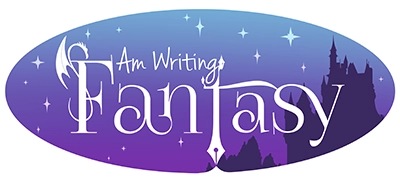StoryOrigin has a new feature for helping authors sell ebooks direct to readers.
This is a huge new feature, but before we dig into, let’s explore a few things.
What You'll Learn
The Rise of Indie Authors
Over the past decade, indie publishing has taken over the book world. Why?
- Cost. Anyone can publish an ebook, and because of the internet, reach anyone anyone else the world for almost no cost
- Control. Authors own the process, and don’t have to wait months for a publisher
- Royalties. With self-publishing, you get higher royalty rates and can make more money.
This last one is key.
It’s the reason direct selling is becoming more popular. You can earn more money.
The Rise of Direct Sales
Selling direct to readers means that you are responsible for:
- Processing the payments
- Collecting & remitting sales tax
- Delivering the ebook file download
- Handling reader tech support
- Marketing channels for the book
Any individual item on this list can be a huge headache.
With large retailers, like Amazon, Apple Books, Google Play, etc., indie authors don’t have to worry about all of that. They just upload their book and hit publish (though, advertising can still be a challenge!).
That comes with a downside.
While self-publishing comes with higher royalty rates, usually those retailers still take a big chunk of the sale price of your books, somewhere between 30-65%!
That’s where StoryOrigin + Lemon Squeezy come in.
StoryOrigin handles:
- Delivering the ebook file download
- Handling reader tech support
- Marketing channels for the book
While, Lemon Squeezy handles:
- Processing the payments
- Collecting & remitting sales tax
With this combination, you can earn substantially more from each sale.
The Math
The main cost for authors with this setup is the transaction processing fees. Lemon Squeezy charges $0.50 + 5% per transaction, or $0.30 + 5% per transaction if you integrate your StoryOrigin account with Lemon Squeezy.
This is the best pricing you can possibly get for transaction processing fees if you want to do direct sales on a platform that acts as the Merchant of Record (meaning the payment processor is responsible for collecting & remitting sales tax).
Other Merchant of Record platforms like PayHip or Gumroad charge 5-10% fees ON TOP OF normal credit card or Paypal processing fees (usually $0.30 + 2.9%) meaning that you’re paying $0.30 + ~8-13%.
Regardless of which payment processor you choose to use, there is always going to be a minimum fixed fee of $0.30 per transaction.
So, if you’re selling an ebook for $0.99, you’re not going to be making much more money than you would if you just sold your ebook via traditional retailers. (In certain cases, you might even make more by selling a $0.99 ebook via traditional retailers.)
Thus, authors are better off selling higher priced products due to the fixed portion of the transaction fees.
Let’s just take a quick look at what you would earn at various price points (only accounting for the fixed fee):
- $1 – $0.30 = $0.70 or 70% of the sale price.
- $10 – $0.30 = $9.70 or 97% of the sale price.
- $25 – $0.30 = $24.70 or 99% of the sale price.
You might be thinking, “How could I sell an ebook for $25?”
That’s where upselling comes in!
Most authors make the first book in their series free or cheap to entice readers to start into a series.
If readers like the first book, they’ll usually end up buying every book in the series.
So, instead of selling each individual book for $3 or $4 in separate transactions (and paying the $0.30 transaction fee each time), you sell the entire series for $15 to $25.
Let’s say you have a 6 book series. The 1st is $1, and the other 5 are $4 each.
If you sell them individually, you will make $21 – $1.80 = $19.20 in profit or 91% of the sale price.
Alternatively, you could sell the complete bundle for $20 (a 5% discount for the reader), and you would make $20 – $0.30 = $19.70 in profit or 99% of the sale price.
Again, we’re only looking at the fixed fee discount, and we’re assuming that there’s a 100% read-through-rate for the series when you sell them individually.
However, your read-through-rate for the series will never be 100%, so for every 100 copies of Book 1 that you sell in the series, you might only be selling 70 copies of Book 6.
That means, you’ll usually still make more money even if you discount the series bundle by a much larger percentage (even 20% or 30%). That’s better for both you and your readers!
Other Benefits
Retailers are incentivized to sell A book, not YOUR book.
When readers land on your book page on a retailer, they’ll see books listed by other authors in the same or similar genre, perhaps books with more reviews or more enticing cover art, etc.
That makes running ads on Facebook, etc. more expensive for you as an author, because many readers directed to your sales pages on a retailers will end up clicking on other books or products.
When you sell directly from your website / domain, there are no other books or products to distract potential buyers.
You have their attention, making your advertising more effective.
When you do make a direct sale, you can also collect that reader’s email address, so you can build a direct relationship with your customers through your email list.
Maintaining a mailing list is one of the best ways to market yourself as an author, because you can connect directly with your readers every time you have a new release.
You don’t need to pay for advertising each new release, because you can simply email your existing audience.
Having readers’ email addresses allows you to do things like create “look-alike” audiences with Facebook ads, so you can reach similar audiences to the people that have already bought your books.
Getting good at ads platforms like Facebook, etc. can be quite daunting though: figuring out targeting, bidding strategies, A/B testing, etc. is challenging.
When you set up your direct sales pages with StoryOrigin, you are also given another avenue for advertising your books: arranging Newsletter Swaps or joining Group Promotions.
Authors can collaborate with other creators or join collective platforms to pool resources, expand reach, and cross-promote each other’s works. This collaborative approach can enhance visibility and attract a broader audience.
At the end of the day, all you need to do is put a link for the cross-promotion in your newsletters – a task that won’t require constant monitoring and adjustment.
Conclusion
Direct sales opens an entirely new world for many authors and using services like StoryOrigin to enable your direct sales significantly lessens the burden.
Take ownership of your career, connect with readers, and maximize your potential profit on each book sale.
Looking ahead, the future of direct book sales seems promising. As more authors embrace this approach, expect readers to seek out more opportunities to buy directly from authors.
As you explore direct sales for yourself, remember the key aspects of direct sales:
- Leverage upselling strategies, such as bundling series books
- Eliminate distractions on retail platforms, making advertising more effective and allowing authors to focus on cultivating their audience
- Collaborate with other authors through platforms like StoryOrigin to reach more readers











0 Comments